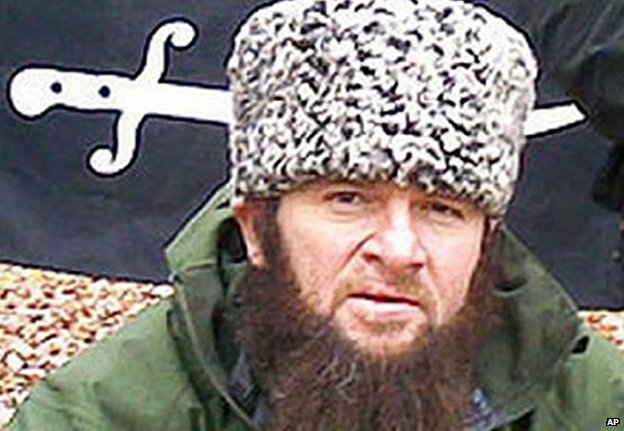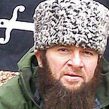
Rebels Continue to Operate in Chechnya Despite Doku Umarov’s Death
Publication: Eurasia Daily Monitor Volume: 11 Issue: 68
By:

Following the news of Doku Umarov’s death and the elevation of a new leader of the North Caucasian armed underground, experts have started to debate whether this will bring changes in the tactics of the insurgents.
The replacement of Umarov, whose death was announced only in the middle of March (https://www.unian.net/world/897913-kavkaz-tsentr-soobschil-o-smerti-lidera-chechenskih-boevikov-dokku-umarova.html), will change little in the militants’ tactics. The fact that news of the death of the rebel leader was strictly guarded by the militants for several months led some observers to conclude that there was discord among the militants over who might succeed him (https://www.kavkaz-uzel.ru/articles/239778/).
This, however, is a rather shallow analysis of the situation that assumes that the rebels’ internal politics mirrors that of Russian domestic politics. The militants do not select the head of the Caucasus Emirate from among a number of ardently willing candidates. On the contrary, every potential candidate tries to avoid being elected to this position, knowing that if he becomes rebel leader, he will automatically attract all the attention of the Russian security services. In addition, the selection pool is fairly limited: to be precise, it consists of six persons—the leaders of the jamaats of Dagestan, Chechnya, Ingushetia, the united jamaat of Kabarda, Balkaria and Karachay, plus the Caucasus Emirate’s military emir and its qadi (Islamic judge).
The Chechen militants took their oath of allegiance to the new Caucasus Emirate leader, Emir Abu Muhammad, despite the fact that the Chechen emir, Emir Khamzat, who was Umarov’s first deputy, was not named among those taking the oath. It is not clear whether or not he died along with Umarov. Whatever the case, he did not show up in his usual location, prompting some observers to wonder if the Chechen jamaat still exists or not. In fact, the Chechen jamaat does exist, and it will now have greater freedom of action than before, given that most of its militants’ efforts went to protecting Doku Umarov. Umarov’s brother, Ahmad Umarov, confirmed via an audio message that Khamzat remains Chechnya’s emir (https://kavkazcenter.com/russ/content/2014/03/25/103741.shtml).
Recent bomb attacks on military vehicles are an ominous sign for those who think that the militants in Chechnya have been neutralized. During a reconnaissance mission near the village of Yandi in Chechnya’s Achkhoi-Martan district on April 3, a bomb destroyed an interior ministry armored personnel carrier (APC), killing four servicemen and wounding seven others (https://topwar.ru/43058-podryv-bmp-v-chechne-4-cheloveka-pogibli-7-postradali.html). According to rebel websites, locals claimed there was gunfire after the bomb attack (https://kavkazcenter.com/russ/content/2014/04/03/103913.shtml). A video recorded by security forces indicates that two bombs detonated and that the APC was completely destroyed, and that some of the servicemen inside died as a result of the ensuing fire (https://www.youtube.com/watch?v=U-zaOVq0TG0).
The Russian Ministry of Interior said it remained unclear who carried out this attack. But it noted that a rebel group under the command of a native of the village of Assinovskaya, Beslan Makhauri, operates in the area of the administrative border of Chechnya and Ingushetia, and that this group may have carried out the attack (https://chechnya.kavkaz-uzel.ru/articles/240462/).
Makhauri’s group may have carried out the raid, but it could have been another group, such as the one headed by Emir Khamzat (Batukaev) or the one headed by Emir Aslanbek (Vadalov). The Russian military believes the attack was linked to the start of the spring–summer season, when the militants supposedly become more active. This, however, is an inaccurate assessment, given that the rebels ceased using this type of tactic several years ago and switched to less frequent military operations due to the losses of rebel fighters and reduced numbers of volunteers. During Umarov’s time as emir, the rebels undertook fewer attacks on military units in an effort to preserve their numbers and to expend whatever resources they had on protecting Umarov. This partly explains why he survived as long as he did as Emir. Former Chechen President Aslan Maskhadov, on the other tried to fight a more traditional guerrilla strategy and ordered Chechen units to fight selectively in spring and summer when the foliage permitted easier maneuver and then spend the winter in the cities. Thus the renewed attacks in Chechnya appear to reflect a change in strategy back to the more traditional form of attacks that Chechen rebels used after the start of hostilities between Russia and Chechnya in 1999.
Residents of Chechnya learned about these events from the Internet because such topics are taboo for the republic’s traditional media. Courts have ordered that the websites of the rebels be blocked in Chechnya and across Russia on the grounds that they reflect the views of terrorists. Moreover, websites reflecting the opinion of Chechens viewed by the government as disloyal, such as Chechen.org, which contains only Chechen historical and cultural studies, are also blocked.
While the Chechen authorities tend to suppress news about the militants’ actions, every arrest of an alleged rebel accomplice is trumpeted in the republican media (https://chechnya.kavkaz-uzel.ru/articles/240503/). For example, a person suspected of helping the militants back in 2010 by buying food for them was arrested on April 4. Illegal possession and carrying of arms is another article of the Russian Criminal Code that is frequently invoked. On April 4, a suspect identified as Magomad Ahmadov was accused of turning a gas pistol into a combat weapon.
Such arrests are not uncommon and are designed as preventive measures directed against the large swaths of population. Every person should know and fear that he could be detained any time for alleged illegal arms possession or possession of drugs.
While Chechen leader Ramzan Kadyrov would like to see Chechnya without any traces of war, such policies are not helping to pacify the republic. The situation in Chechnya is far from the blissful one portrayed in the Russian media. As long as the authorities regard the population of the republic as the enemy, there will be no progress in attracting investment to the republic.




